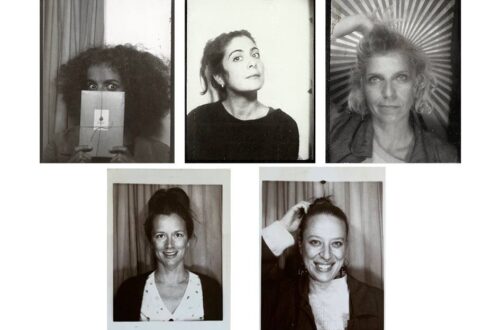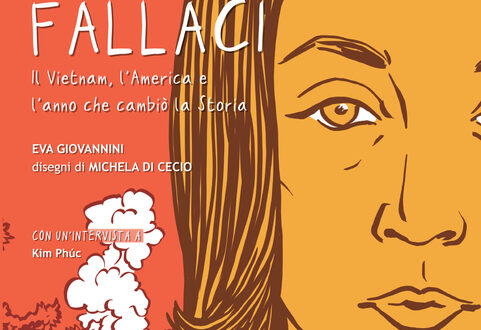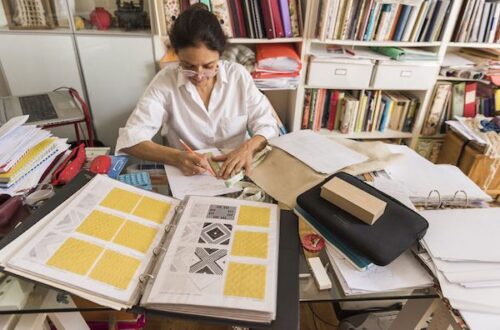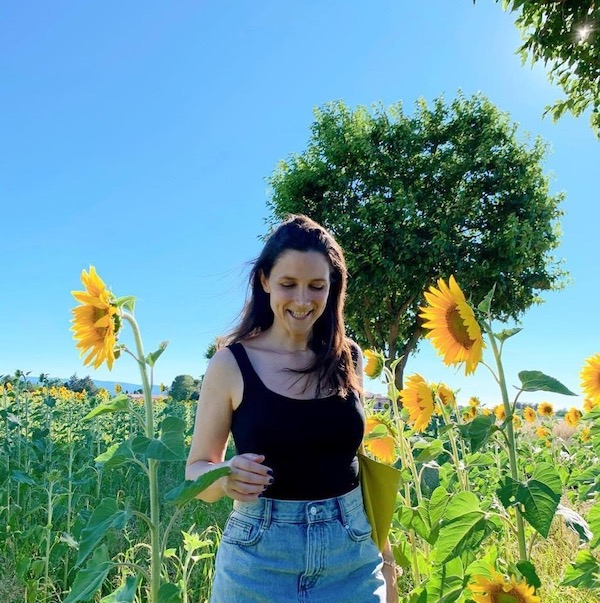
Interview with Author and Guest Judge: Flavia Brunetti
This interview appears in the January 2021 Issue of The Open Doors Review. To view the magazine, click here.
Introduction
Flavia Brunetti is the author of “All the Way to Italy: A Modern Tale of Homecoming through Generations past.”
The novel tells the story of Little, a girl who until the death of her father, considered herself a Californian. Now, thanks to half a letter, a symbol she can’t quite remember, and a case of writer’s block, she finds herself back in Italy with a lot of questions about her family and her country. On her journey throughout Italy, Little will enlist the help of the aunt who raised her, friends old and new, and the country itself, in her search for the answers she needs.
This is a powerful story that will appeal to anyone who has ever balanced wanderlust with the need to come home, a reminder that although we may be fragments, we are never a lost cause.
Flavia is the guest judge for the January 2021 issue of the Open Doors Review. She joined me in a caffe in Rome for a conversation about her book and Italy. You can listen to the audio recording of our conversation on opendoorsreview.com.
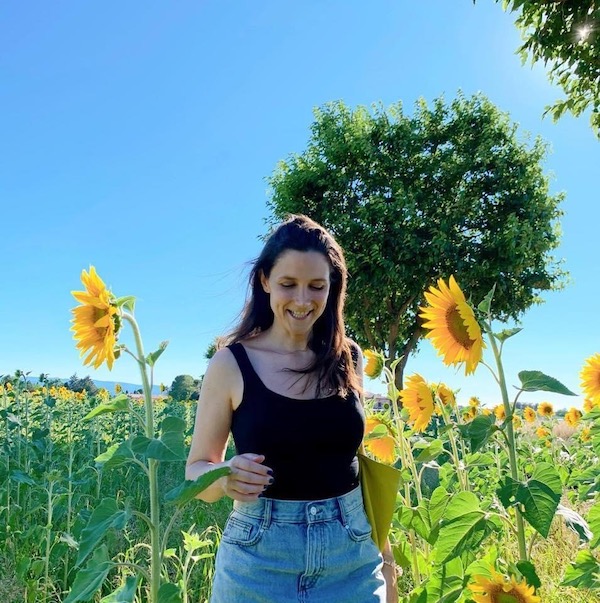
Interview
Lauren: Flavia, thank you for having this conversation with me today!
Flavia: Thank you!
Lauren: Like the main character of your book, Little, you have Italian parents but you grew up in California and returned to live long term in Rome only as a young adult. I think moving to Rome is something a lot of people dream about and Italy is frequently romanticized as this perfect, almost magical place of escape and adventure but I wonder….Did you have to learn to love Rome in the same way that your protagonist did?
Flavia: Yes I certainly think that I did. I think that it’s a process and it’s an ongoing process but when I was growing up in California and going back and forth, I used to come to Rome and I liked it very much but it didn’t feel like home. There were a lot of things about it that I didn’t like that I didn’t feel resonated with me. About fifteen years ago when I moved back to Rome, there was about six months into it that something clicked and… I loved Rome. And I felt like I resaw everything. When I was a teenager and I would see the Colosseum, I’m ashamed to say that I wasn’t hugely impressed. Now, every time I see the Colosseum, it almost brings you to your knees.
Lauren: What was the turning point in your relationship with the city?
Flavia: I had to learn to Love Rome again and I think I learned to love her through my roots. Growing up I did not feel so connected to my roots but being in Rome is what awakened in me this sense of generations past. When I fell in love with the city I was, in a way, falling in love with the story of my family but also the families of people who told me their stories. Friends of mine who grew up Italian American perhaps and this sense of identity that they brought with them when they left and the way that it changes when they’re in a different country and the way it changes again when they come back. And so the story kind of merged and became something new that I built off of. And so yes, now I’m madly in love with Rome.
Lauren: Your book is fiction but knowing a bit about your life, it’s clear many elements of the book are autobiographical. Did you set out to write fiction and your real life snuck into the story or did you purposefully choose to write something that combined fiction and autobiography?
Flavia: I think I always knew that the story I wanted to tell came from stories that my aunt used to tell me when I was a little girl and that I grew up hearing about her and my dad. That was something that I wanted to put down into writing. Primarily the book for me is a love story to Rome but it is a love story also to the type of love that comes from family and friends and identity and I think for me personally, I always knew that that was going to be a mix of fiction and what happened in real life.
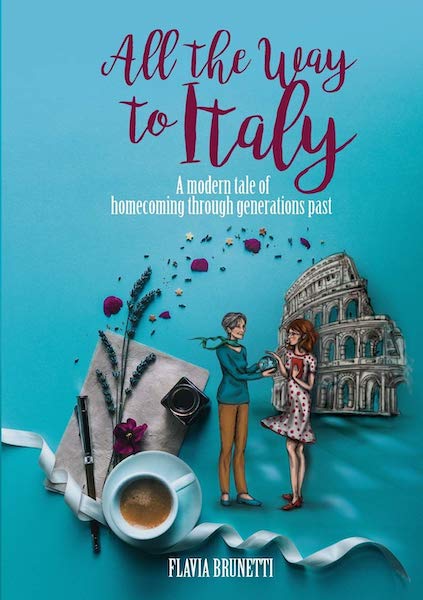
Lauren: There’s a lot of satisfying armchair travel to be enjoyed in All the Way to Italy. Little has her home base in Rome but at one point she goes on a roadtrip that includes Florence, Orvieto, Naples, and she also spends a lot of time in Sperlonga and the region of Lazio. Which of the places described in the book captures your imagination the most?
Flavia: The place that I thought of immediately when you started asking this question (even though it’s impossible to pick a favorite) was Giardino di Ninfa and Sermonetta. That whole scene in the book, including the meal that’s described in Sermonetta at that restaurant, stayed in my mind and I wrote about it like that because it was just something that was so magical to me and because Giardino di Ninfa really feels like opening a door and stepping into another world and so does Sermonetta. In a way they kind of embody all of your best hopes of what Italy will be like when you come here.
Lauren: While I would describe the book as romantic from a certain perspective, I know that including a traditional romance was actually something you did not want to include in the book. Why is that?
Flavia: I didn’t cut it out of the book because I don’t think traditional romance is important. It was just that for me in this book it was really important that Little finds herself and her identity and that the love that is focused on in the book is her bond with her aunt, the love that carries her through which comes from and to people and places. I wanted it to be about love but about a different type of love. I’ve had this question quite a few times because when the book was first going through an editing process, it was suggested to me several times: you have to have a romantic lead. And for me it was really important that the book did not have that kind of romantic lead because Little saves herself and not even just that she saves herself, but that the love that is so present in the book that I hope comes across is all different types of love.
Lauren: Something I personally loved about the book is that alongside this beautiful version of Italy that the rest of the world might be familiar with, you address some of the more complex sides of the country. For example the rise of fascism during the first half of the 20th century and the current economic crisis and lack of opportunity for young people in Italy today. There’s a whole scene with Little’s Italian friend Barbara in which Little expresses the optimistic, I would say more “American” perspective of “if you just work hard you can achieve anything” and Barbara kind of opens her eyes to the difficult realities faced by so many people looking for work in Italy. How important was it to you to include this side of Italy in the book?
Flavia: That was something that struck me very hard when I first moved back here from California. I was that American saying “If you work hard…” or “But why don’t you go ahead and open your own business?” Spending more and more time here I realized how crushing that can be. I think it’s something that’s important to discuss, I think it’s important for young people to talk about it and to generate change somehow but I think that it very often does not get talked about internationally speaking, when you’re talking about the dream of moving to Italy which I think is still a good dream, I wouldn’t discourage someone from moving here. But there are realities we need to bring to the light and talk about and I think this is something that Little talks about at the end of the book when she’s writing that article for the newspaper because I think it’s something that she’s trying to explore as well and I think that it’s something that Italians looking for a future and searching for a future are also trying to explore. Hopefully that is the kind of conversation that will generate some kind of real change for the future and for the type of work that people are wanting and demanding now and the fact that people prepare themselves for a future that they sometimes cannot grab. Sometimes people in Italy are incredibly well educated and they’ve worked really hard and they have to leave the country – actually the brain drain was my thesis for my first degree. There should be a choice about whether you want to leave your country. If you want to leave it, great. But If you want to stay here and still be able to apply the skills that you have learned you should be able to. So I think that that’s a change that is important to discuss.
Lauren: In recent years, you have moved again and spend much of the year in Tunis working for a humanitarian organization. Has this changed your relationship with Rome again?
Flavia: Yes, it absolutely has. I have fallen more in love with Rome since I left. They say absence makes the heart grows fonder and I’ve learned that when I go to another place I love it very much and I can fall in love with these other places and I do think that somehow they change the color of my heart. But ultimately within five weeks I am incredibly Romesick and I want to come back home even just to walk down the street or go to the piazza or see the Colosseo or Piazza Navona or even just get lost down the streets of Rome and see the people and have a real espresso because there is no other coffee! … It changes the way you think about the place that you belong. I think that moving someplace else also expands the way you think of where you belong which is beautiful thing and then I come back to Rome and after a week or two I get antsy again and I’m ready to go, but I also know where I want to come back home to.
Lauren: Flavia thank you so much it was awesome talking to you about All the Way To Italy.
Flavia: Thank you so much Lauren. It really was such a pleasure. I wish you the very best of luck with Open Doors. I cannot wait to see all of the amazing places and voices that I’m sure you’re going to get to highlight.
Lauren: I’d like to end with a quick round of rapid fire questions I asked Flavia to start off our interview to get an idea of who Flavia Brunetti is as a reader and writer.
Lauren: Short Story or Novel?
Flavia: Short Story
Lauren: Mystery or Romance?
Flavia: Mystery
Lauren: Historical Fiction or Fantasy?
Flavia: Fantasy
Lauren: Read to escape or read to delve into the big questions?
Flavia: Ooh… is it an either/or?
Lauren: Yes you have to pick one or the other!
Flavia: How could you blindside me like this? Um, read to delve into the big questions. Except in 2020! Read to escape!
Lauren: Happy ending or complicated ending?
Flavia: Complicated ending.
Lauren: Writing or Editing?
Flavia: Writing.
Lauren: A real book or a kindle or digital version?
Flavia: Oh real book.
Lauren: Do you write with music in the background or silence?
Flavia: I have to have total silence. I’m super easily distracted.
Lauren: Reading books or writing them?
Flavia: (laughing) Um, can I just drop the mic and leave? Hmm…Reading books. Reading books is a prerequisite to writing them so if I have to pick one I’m gonna go with reading them. Also because then reading the really good books is what makes you want to write one right?
All the Way to Italy by Flavia Brunetti can be purchased online around the world.
